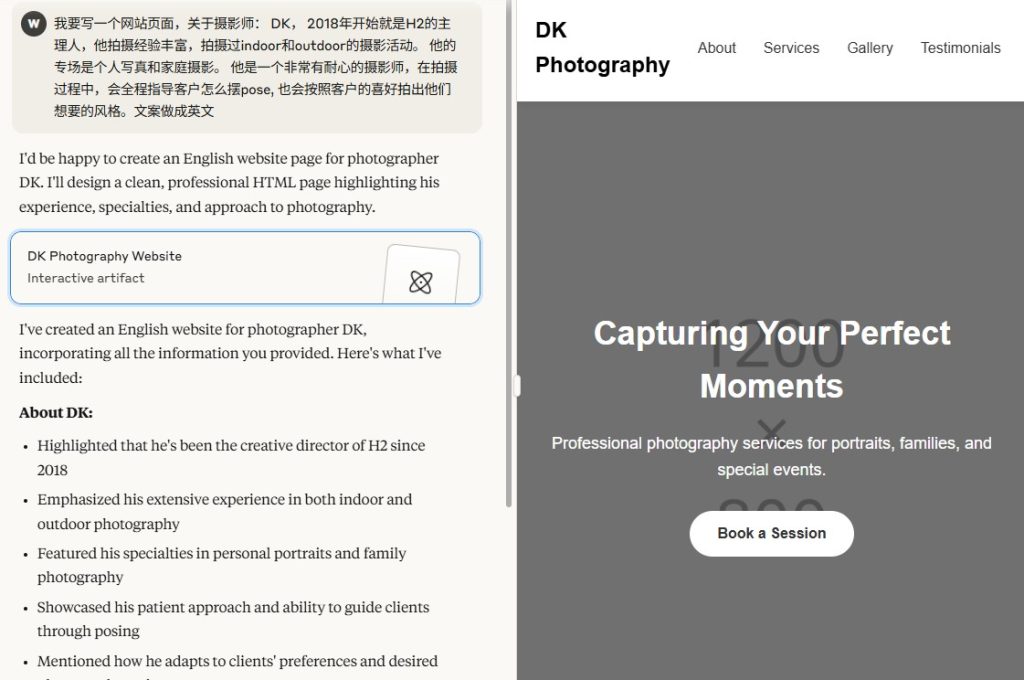In a competitive business world, a brand simply can’t do without SEO keywords. If you want your business to be seen, you should do something to make this happen. For this, SEO is the best option available to you. Becoming a market leader wouldn’t have been challenging back in the day. Or even ranking for a particular keyword wouldn’t have been a tough game then.
Today, the rules have changed, and so have the players. If you want to up your game in this competitive world, you should be ready to get your hands on the right SEO keywords. One wrong move can result in bad turnarounds, so be wise enough when handling keywords. Together, let’s see how you can identify SEO keywords for your brand.
What Are Keywords?
Keywords are phrases widely used by potential customers. They are the phrases or terms they enter into search bars to find their desired service or product. Keywords offer an excellent level of insight into your audience’s mindset. Using keywords, they seek to get clarity on their own needs and also find more information about the service or product they might consume.
Generally, using the right keywords can help you fine-tune your content to rank higher on Google. But that’s not all. You will encounter dramatic improvement in other areas as well. However, you must first ensure that your website’s or brand’s keywords align with those of your potential customers.
What Is Keyword Research?
The algorithm used by Google keeps changing, so you can’t treat it like a set of guidelines. You must keep an eye on the changes to stay ahead of the curve. But that’s not all. There are as many as 200 different factors that help determine a website’s ranking. You must therefore do quality research on keywords to rank your website in Google’s top search results.
The time and hard work you put into keyword research will decide the rest of your ranking journey. This is exactly why you can’t compromise on SEO keywords. The right keywords will help you reach your target audience. If you have the right strategy and proper plan, it will only be a matter of excellent implementation for you to shoot up on search engines and generate a good amount of organic traffic.
Why Is Keyword Research Vital?
Brands make a mistake when they become too concerned about just publishing content. Well, publishing content on the Internet is good, but doing it mindlessly is a terrible idea. You will not drive traffic if you don’t have a strategic plan for publishing. Most brands publish articles and blogs only to end up with no traffic coming in.
The simplest reason behind this is that you have not done your homework. If you want to publish content online, you should know who’s in need of it. If you have a target market, you should know what they want to know about your brand. You can’t do any of these without first doing thorough keyword research.
If you publish a blog or article that no one searches for, then it’s fair that you’re not getting any traction. However, if you do your keyword research, you will be able to find phrases that you can focus on. Once you start addressing your potential customers’ queries, you’ll start getting traffic coming to your website.
How To Find SEO Keywords To Enhance Your Brand Identity?
Finding the right keywords or search terms to attract an audience doesn’t just happen overnight. You have a lot to do in order to achieve success in this. It begins with understanding the audience and the industry. You must have the ability to think from the customers’ perspective. What would they want to know about the X product or service? Would they like the Y product for its features, or could it be for its price?
Once you understand the potential customers’ wants, you will be able to use keyword search tools like SEMrush, Ubersuggest, and more. These tools will help you generate more related terms to rank your website higher. If you don’t know how to use these tools, you must first learn about them before seeking help. Here are the top 4 methods to speed up your keyword research.
Focus On Seed Keywords
This is the first step in your keyword research journey. The seed keywords are the phrases that define your brand or niche. These words help you find out who your competitors are. You’ll be required to enter the seed keyword regardless of the keyword tool you’ve selected. It helps the keyword tool to generate more ideas to help you.
As you already have a brand, you can easily come up with seed keywords by thinking from the buyer’s point of view to know it. For example, if you sell electronic equipment, your seed keywords could be:
- Electronic equipment
- Electronic appliances
- Electric items
- Etc.
However, don’t get carried away by researching only seed keywords because they don’t require a lot of attention. You can’t use them to optimise your website for SEO purposes. You can find them in a few minutes, so don’t spend a lot of time on them.
Find Your Competitors’ Target SEO Keywords
This is one of the best ways to find the target keywords. You should find your competitors if you want to know what your competitors are ranking for. You’re good to go as long as you have the brainstormed list. You can simply enter the seed keywords to find who ranks top on Google search for those words. And they’re the ones you should seize.
What if none of those sites resembles your brand? That’s simple; you should then move on to the next closest term. As we said earlier, there could be slight changes in seed keywords. If you don’t find competitors in “electronic equipment,” you should try “electric appliances.” It could be because your potential buyers are more familiar with the term appliances than equipment.
Once you’ve pulled up the competitor list, you can then use the keyword tools to check on their pages and find the keywords that attract more traffic. You should do this for a few different competitors. By the time you’ve done your search run, you will have a list of keywords to target, both short-tail and long-tail keywords. Some keywords could be informational. These require the support of blog articles. Some others could be commercial, and they need product pages. Based on the search intent, you should create content so that they actually bring leads that can be turned into sales.
Make Use Of The Keyword Tools
You can’t rely on researching competitors alone. Why? Because they might have missed out on keywords that could help attract more traffic. This is why you should make use of keyword research tools. These tools are easy to manage because they work alike. You enter a seed keyword, and they give you a list of words to target.
One of the popular tools is Google Keyword Planner. It’s free, and though it’s meant to be used for paid Google ads, you can get the best out of it for your own SEO research. This tool provides you with keyword ideas that may not contain the seed keyword. Sometimes, there are certain areas in “electric equipment” that aren’t that obvious.
This tool helps you bring those to light, and you can use them to attract an audience who actually searches for those non-obvious things. These new words, too, can be turned into seed keywords if you want to generate more ideas.
Think Out Of The Box
You can use the above tips to generate loads of SEO keywords, but that’s not enough. Don’t you like to stand out from the rest of the brands? And for that, you need to think out of the box. The best way to do this is by researching beyond keywords.
You should be the one to know about your target audience. Now, find the areas they spend more time on when discussing your niche. Maybe Q&A sites, industry groups, forums, etc., would help you understand your audience a bit more.
You can engage with them to understand the questions they might have. Analyse the way they communicate, the language they use, and more. Such close analyses will help you generate content ideas which you will want to have in the pipeline.
Wrapping Up
You now have the simplest yet most practical guide to kickstart your keyword research journey. These tips will help you pull up a list of SEO keywords you can use for your brand. While decisions regarding SEO are subjective, you can use this knowledge to see what your brand is missing.
It’s impossible to market your brand without understanding user intent, SEO keywords, and optimal keywords. So this guide will help you scope out these blind spots. We hope you get the best out of this.
If you think the process is too tedious, you can always rely on Digital M to help you out with all your digital marketing needs. Reach out to our friendly consultants today to discuss your requirements.








